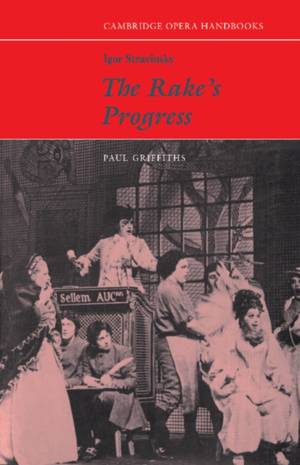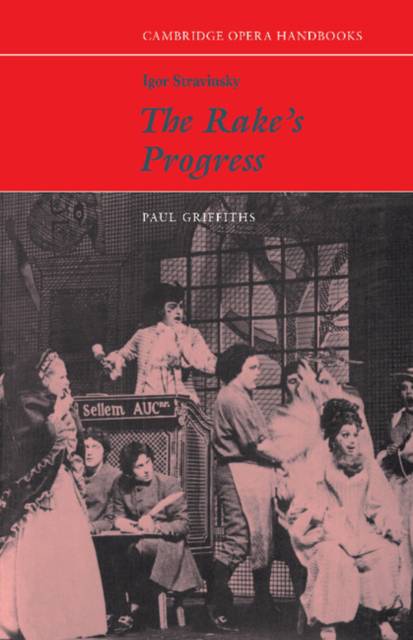
Je cadeautjes zeker op tijd in huis hebben voor de feestdagen? Kom langs in onze winkels en vind het perfecte geschenk!
- Afhalen na 1 uur in een winkel met voorraad
- Gratis thuislevering in België vanaf € 30
- Ruim aanbod met 7 miljoen producten
Je cadeautjes zeker op tijd in huis hebben voor de feestdagen? Kom langs in onze winkels en vind het perfecte geschenk!
- Afhalen na 1 uur in een winkel met voorraad
- Gratis thuislevering in België vanaf € 30
- Ruim aanbod met 7 miljoen producten
Zoeken
€ 40,45
+ 80 punten
Omschrijving
The Rake's Progress is Stravinsky's biggest work and one of the few great operas written since the 1920s, rare too for the unusual quality of its libretto, by Auden and Kallman. Its importance is undisputed, but so too are the problems it raises: problems of both performance and understanding, caused by the irony with which it is so thoroughly permeated. In aspects of style and operatic convention it looks back to the eighteenth century, and in particular to the operas of Mozart and da Ponte, while making references also to other periods, to operas from Monteverdi to Verdi. Yet at the same time it is wholly a work of the twentieth-century, and indeed it is centrally concerned with the impossibility of return, artistic, psychological or actual, as well as with the nature and limitation of human free will. The Rake's Progress is not one of unbridled dissipation but rather, more interestingly, one of attachment to naive notions of freedom and choice, and his tragedy is that he can never go back.
Specificaties
Betrokkenen
- Auteur(s):
- Uitgeverij:
Inhoud
- Aantal bladzijden:
- 124
- Taal:
- Engels
- Reeks:
Eigenschappen
- Productcode (EAN):
- 9780521281997
- Verschijningsdatum:
- 2/09/1982
- Uitvoering:
- Paperback
- Formaat:
- Trade paperback (VS)
- Afmetingen:
- 139 mm x 215 mm
- Gewicht:
- 181 g

Alleen bij Standaard Boekhandel
+ 80 punten op je klantenkaart van Standaard Boekhandel
Beoordelingen
We publiceren alleen reviews die voldoen aan de voorwaarden voor reviews. Bekijk onze voorwaarden voor reviews.









